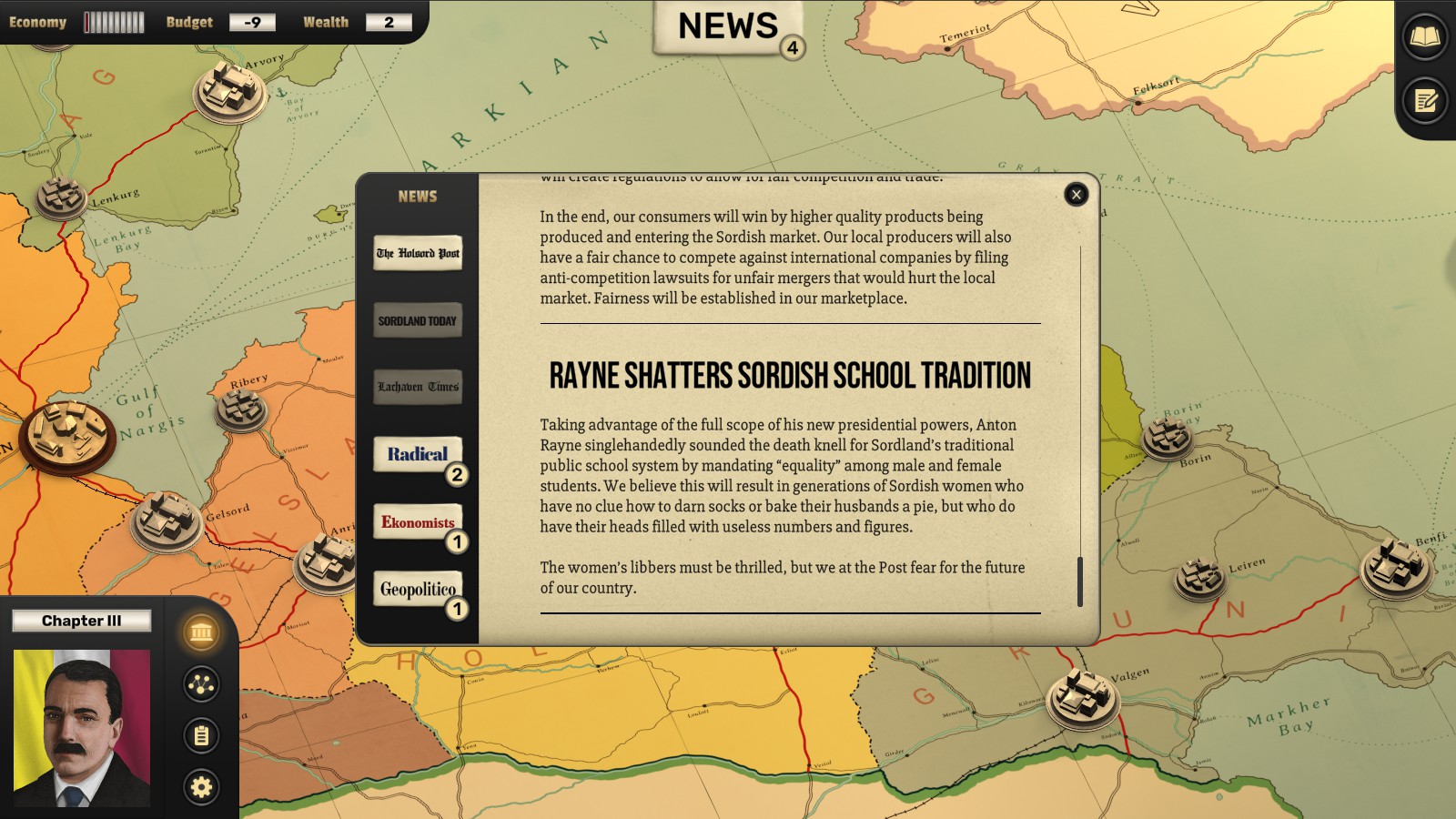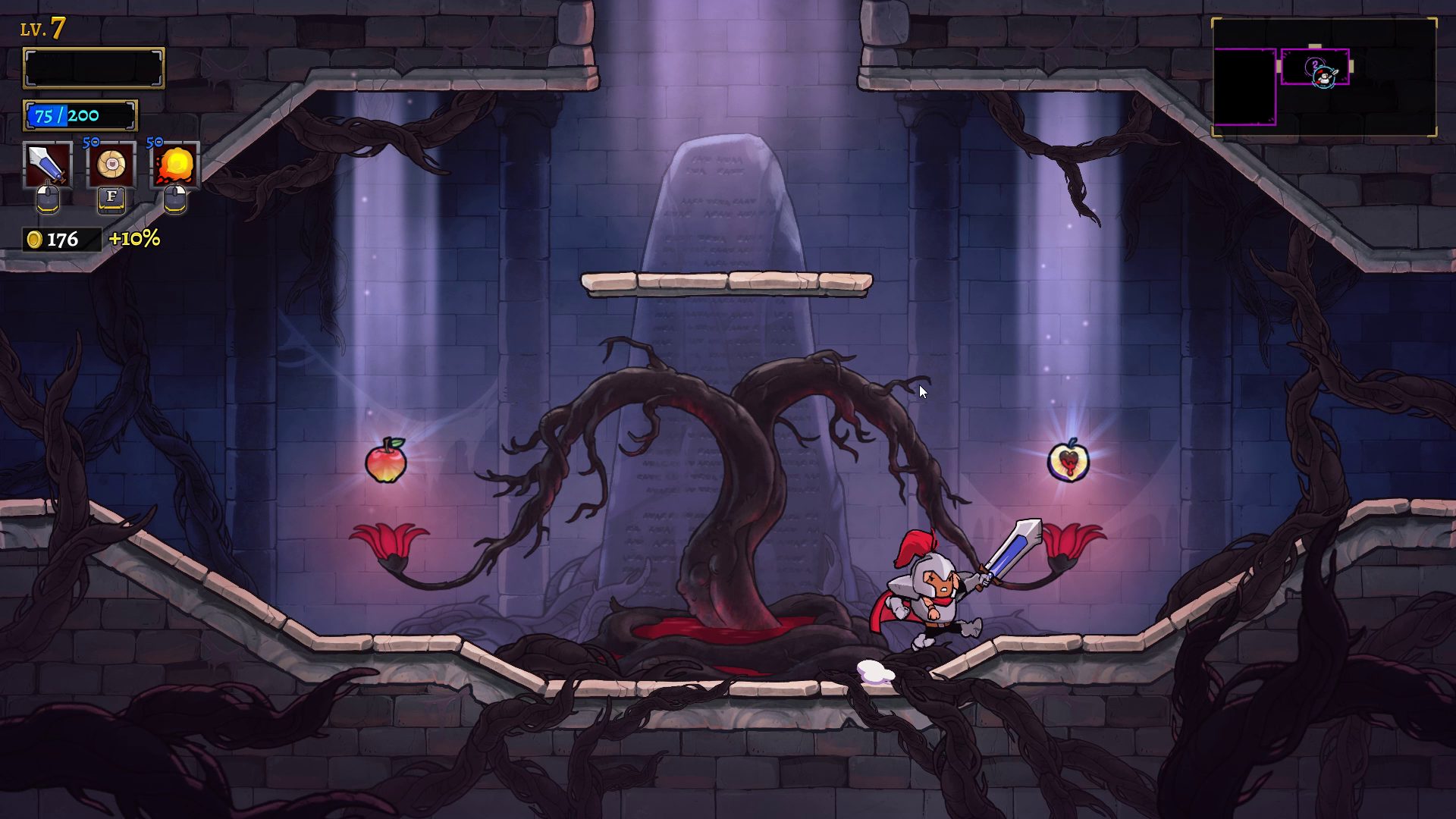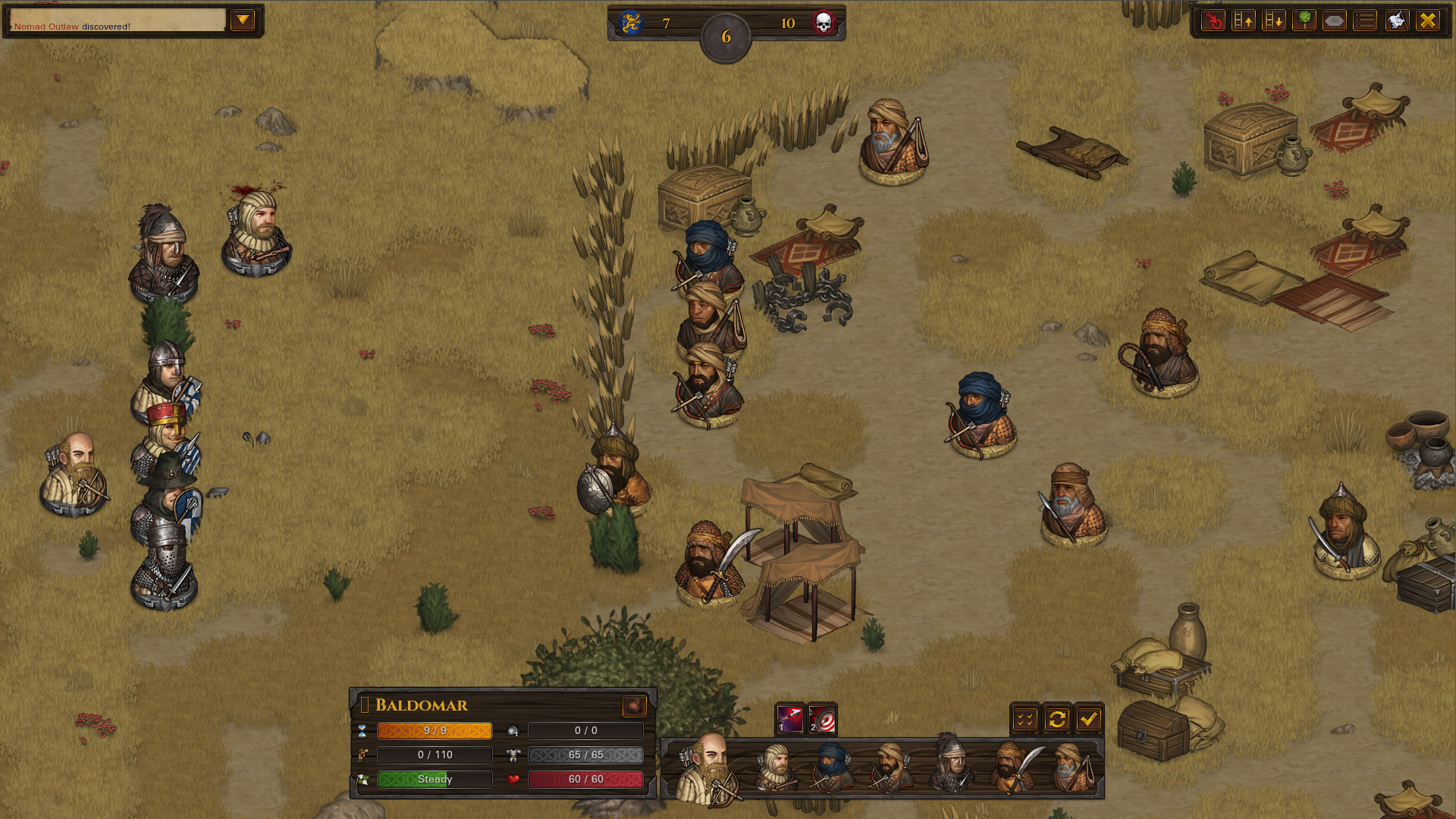Dann’s Top 5 Games Of 2020
Hello hello. Blimey, 2020 has been about as far from a barrel of monkeys as it could be — I’m positively thrilled to put this calendar to bed and hopefully, with it, all of the junk that’s been snowballing over the last five years. Anyway, phew, nothing quite like kicking back and playing a game to escape from the grim realities of the real world (even if you’re diving into a yet more grim world), and that’s what I’m here to talk about today. So here, in this post, you’ll find below my top five games of 2020. I’ve opted to keep this list specific to PC and console games, as I’ve written a mobile list elsewhere. Anyway, let’s crack on shall we?
Suzerain
As anybody who knows me will know, I love dabbling in politics in games. Historically I’ve dabbled in tonnes of games which give you the chance to try and build a society free from harm, or, indeed, to build a society which completely serves you. Politics are definitely the root of most, if not all, human issues at the moment, and so games like Suzerain give us the chance to try and experience the role of those in charge, who make these decisions.
Suzerain offers something different than your Democracy or Crusader Kings games, however. It’s full of character and heavy narrative. Impressively, the plot twists and turns are relatively dynamic, and the story bends and twists into nine types of endings entirely based around the choices that you make. You have the choice to run as a progressive, conservative or nationalist, with choices to nationalise, privatise and much-much more, all wrapped around a twisting, personal-plot involving co-workers, family and interior & exterior threats.
My first run saw a member of my cabinet kill themselves, the imprisonment of a foreign spy, as well as a carefully avoided war with a neighbouring nation. I also took a political bribe early on, but then nationalised the briber’s company causing them to flee the country to try and defame me, thankfully I had a friend elsewhere and so had them deported straight back to me where I had them locked up as a traitor. I also struck a deal with the progressives, having dismantled the nation’s oligarchs, however, my own party overthrew me for conservatives, something I could have avoided if I had managed to get governmental reforms through the supreme court. My second playthrough was almost completely different.
It was an amazing, emotional experience which I’m sure I’m going to keep playing for years to come, especially if the development team keep supporting it with updates.
Rogue Legacy 2
The first Rogue Legacy is one of the first Roguelites that I remember playing, the sequel – which launched into early access earlier in the year – builds on the effect of character traits on the player, adding in a whole mass of new traits. It also changes the way that weapons and skills work, making the game a little bit more like a metroidvania title by adding more and more abilities to the player’s skillset over time.
It’s another one that we’re going to have to keep watching in order to find out the whole extent of development, however there are already a couple of different areas to explore and the already included content makes it more than worth the current price of entry for what is a worthy sequel to an incredibly important game. I stand by what I said in my hands on article earlier in the year: “Rogue Legacy 2 manages to build on the successes of the first with some clever new ideas, but most importantly with more of what made the first fun. If you were a fan of the first then the only reason I can honestly think of for holding back on grabbing this is a possible aversion to Early Access.”
Spelunky 2
Following on from Rogue Legacy 2, a very important roguelike platformer’s sequel, comes Spelunky 2, a very important roguelike platformer’s sequel. Haha.
It’s a lot more of the same, but there’s now a lot more items, a lot more variety and there are also turkeys which you can ride… fantastic.
As somebody who spent hundreds of hours exploring the world and learning the patterns and systems of the first game it was a complete delight to explore the new-but-somewhat-familiar world of Spelunky 2, and while I’m nowhere near completing a run in the game I’m still really enjoying throwing myself into its strange world and being wiped out by deadly traps and enemies. The sign of a good roguelike is that you don’t blame the system when you die, you feel like you can learn to be better than it, or at least learn the extent of the randomness, Spelunky and its sequel, really underlines that.
Crusader Kings 3
I’ve been playing Crusader Kings 2 since it launched back in 2012. Over the years it warped and twisted as new regions, systems and – in general – content was added to it. It became a hulking giant which could, I’m sure, have kept growing indefinitely. But, in many ways the core of the game had changed. While the games were never about explicitly being a king who went on crusades, the spirit of the game felt as though it had shifted to being more about legacy and development, rather than simply following a family through the historically-based-but-quickly-deviating timeline of the game.
Crusader Kings 3 pulled back the masses of content and rebuilt the game from the ground up, with the many learnings of the previous game rolled in from the get-go. Things like retinues, councils, complex religions, playable pagans and more were in from the start, and changes to the way that family-lines work were added in too. It also underwent a major visual overhaul, adding a lot more personality to the characters. I really thought that I’d put down CK3 after a while and go back to playing the previous game until DLC started coming out, but I’ve not loaded up a game in the previous game since the day I got my hands on the new one. As I wrote in my review of Crusader Kings 3 earlier in the year, it’s a worthy successor to the throne.
Battle Brothers
I’ve managed to write about Battle Brothers every year since it first entered Steam Greenlight, and I’m really glad of that. This year the game received the phenomenal Blazing Deserts expansion, which added in an entirely new region to the sandbox, squad-based tactics title. The expansion was so great that, somehow, it managed to push Mount & Blade Bannerlord out of my top five, something that I didn’t think was possible.
With the latest expansion, you can take your hardened band of mercenaries into the desert of the south, now rich with city-states, alchemy, scimitars and new dangers. There are arenas to fight in, new candidates for your band of mercenaries, and dozens of new items spread around the world. The whole expansion was a phenomenal effort from a team who had previously said that they wouldn’t release any more expansions, and I couldn’t be happier to have even more content in what is easily one of my favourite games of all time.




Comments are closed.